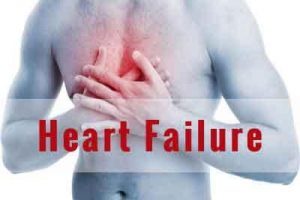- Home
- Editorial
- News
- Practice Guidelines
- Anesthesiology Guidelines
- Cancer Guidelines
- Cardiac Sciences Guidelines
- Critical Care Guidelines
- Dentistry Guidelines
- Dermatology Guidelines
- Diabetes and Endo Guidelines
- Diagnostics Guidelines
- ENT Guidelines
- Featured Practice Guidelines
- Gastroenterology Guidelines
- Geriatrics Guidelines
- Medicine Guidelines
- Nephrology Guidelines
- Neurosciences Guidelines
- Obs and Gynae Guidelines
- Ophthalmology Guidelines
- Orthopaedics Guidelines
- Paediatrics Guidelines
- Psychiatry Guidelines
- Pulmonology Guidelines
- Radiology Guidelines
- Surgery Guidelines
- Urology Guidelines
Sacubitril/valsartan combo effective option in Heart Failure of any etiology: JACC

Heart failure therapy has become complicated due to varying etiology that affects the treatment outcomes. A new study published in the Journal of American College of Cardiology has found that in patients treated with angiotensin receptor–neprilysin inhibitor (ARNI) with sacubitril/valsartan, etiology does not influence treatment outcomes. The benefit of ARNI therapy was consistent across Heart Failure etiologies.
This pioneering study was designed to compare results (and the effect of sacubitril/valsartan) according to etiology in the PARADIGM-HF (Prospective comparison of the angiotensin-receptor-neprilysin inhibitor [ARNI] with angiotensin-converting-enzyme inhibitor [ACEI] to Determine Impact on Global Mortality and morbidity in Heart Failure) trial.
For comparison, the authors examined outcomes and the effect of sacubtril/valsartan according to investigator-reported etiology in PARADIGM-HF. The outcomes analyzed were the primary composite of cardiovascular death or Heart Failure hospitalization, and components, and death from any cause. Outcomes were adjusted for known prognostic variables including N terminal pro-B type natriuretic peptide.
Key findings of the study
- Among the 8,399 patients randomized, 5,036 patients had an ischemic etiology.
- Among the 3,363 patients with a nonischemic etiology, 1,595 had idiopathic dilated cardiomyopathy, 968 had a hypertensive cause, and 800 another cause (185 infective/viral, 158 alcoholic, 110 valvular, 66 diabetes, 30 drug-related, 14 peripartum–related, and 237 other).
- The unadjusted rates of all outcomes were highest in patients with an ischemic etiology, the adjusted hazard ratios (HRs) were not different from patients in the 2 major nonischemic etiology categories.
To conclude the study, the authors wrote: "Just under one-half of patients in this global trial had nonischemic Heart Failure with reduced ejection fraction, with idiopathic and hypertensive the most commonly ascribed etiologies. Adjusted outcomes were similar across etiologic categories, as was the benefit of sacubitril/valsartan over enalapril. (Efficacy and Safety of LCZ696 Compared to Enalapril on Morbidity and Mortality of Patients With Chronic Heart Failure; NCT01035255)"
For further reference, please click on the link
https://doi.org/10.1016/j.jchf.2019.02.015

Disclaimer: This site is primarily intended for healthcare professionals. Any content/information on this website does not replace the advice of medical and/or health professionals and should not be construed as medical/diagnostic advice/endorsement or prescription. Use of this site is subject to our terms of use, privacy policy, advertisement policy. © 2020 Minerva Medical Treatment Pvt Ltd